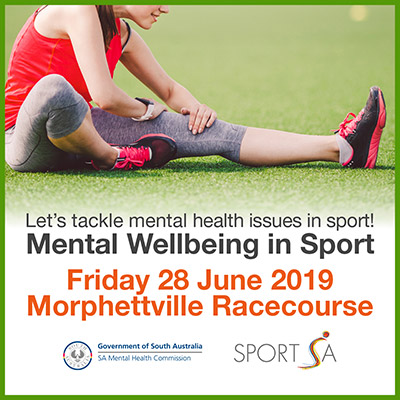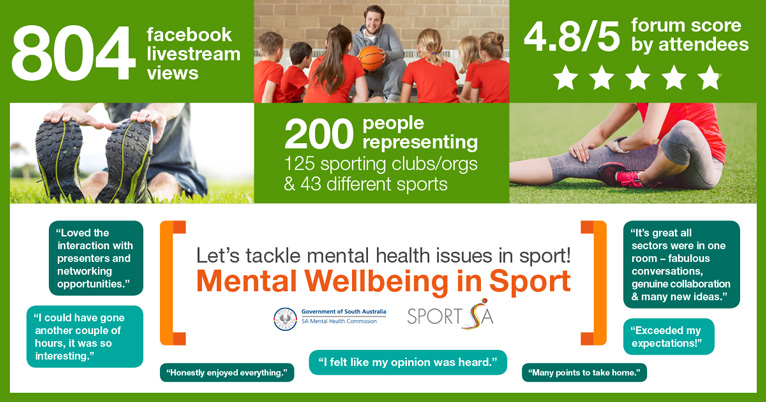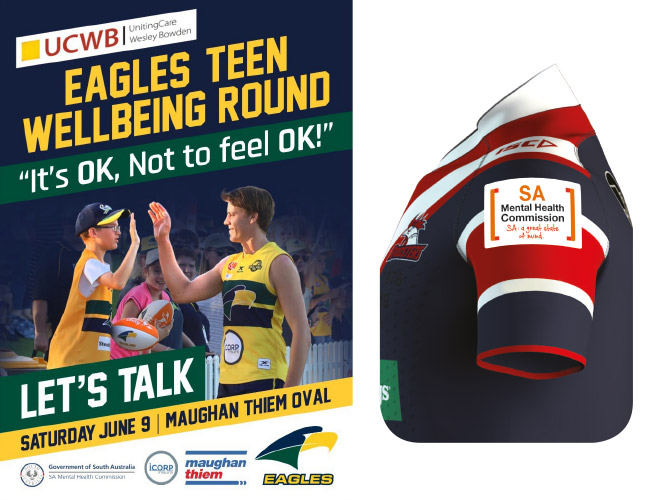Sport is the ideal medium through which to build resilient, compassionate and connected communities.
 Sport impacts and engages the majority of South Australians. Our state has over 4,000 sporting clubs with 58% (over 900,000) of our population participating in sport, with over 260,000 volunteers offering their time and support.
Sport impacts and engages the majority of South Australians. Our state has over 4,000 sporting clubs with 58% (over 900,000) of our population participating in sport, with over 260,000 volunteers offering their time and support.
The SA Mental Health Commission has drawn on its strong connections to South Australian sports organisations to tackle mental health issues in sport and to strengthen the mental health and wellbeing of the community.
The Commission has partnered with Bowls SA, the SANFL, Rugby Union SA and Sport SA as well as many other sporting organisations to gain an understanding of the mental health and wellbeing needs of the SA sporting community and to promote health and wellbeing among their communities and the wider community.
In response to urgent calls from local sporting organisations, the Commission partnered with Sport SA in 2019 to host a forum to address concerns about mental health issues including anxiety, depression and managing injury and performance.
Over 200 people representing 125 sports organisations and 43 different sports attended the forum where speakers and special guests including Olympic cyclist Anna Meares discussed ways to recognise and respond to early warning signs of mental health problems and to find ways to build their sporting communities’ mental wellbeing.
The forum received excellent feedback with participants rating the event 4.8 out of 5 and all respondents stating the event met or exceeded their expectations. Excellent media and social media coverage saw 804 Facebook livestream views of the forum.
The forum was an important opportunity to listen and learn from each other and provide the next steps for further support.


Our Partners:
- Sport SA
- Rugby Union SA
- Business SA
- Breakthrough Mental Health Foundation
- Office for Recreation and Racing
- Bowls SA
- The SANFL
Links to the SA Mental Health Strategic Plan 2017–2022:
Strategic Direction 1:
Strengthen mental health and wellbeing and prevent mental illness through high impact promotion, prevention and early-in-life intervention strategies.
Strategic Direction 2:
Community education to improve awareness and reduce stigma.
Strategic Direction 5:
Provide the right support for our diverse communities.
For further information:

